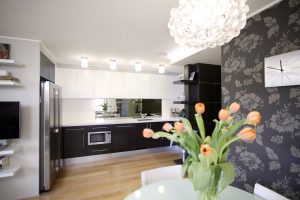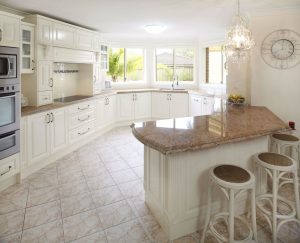The Psychology of Home Improvement: Creating a Relaxing Environment
Our homes are more than just physical spaces; they are extensions of our personalities and play a crucial role in our overall well-being. Home improvement, beyond aesthetics and functionality, has a profound impact on our mental and emotional states. In this blog, we delve into the psychology of home improvement, exploring how intentional changes can transform a living space into a haven of relaxation.
Colors
and Mood:
Color psychology has long been recognized as a powerful
influencer of emotions. When it comes to home improvement blog,
choosing the right color palette can significantly impact the overall
atmosphere of a space. Soft, muted tones like blues and greens are known to
evoke a sense of calm and tranquility, making them ideal for bedrooms and
living areas. In contrast, warm earthy tones can create a cozy and inviting
ambiance in spaces like the living room or kitchen.
Natural
Elements and Biophilia:
Incorporating natural elements into your home design aligns
with the concept of biophilia – our innate connection to nature. Introducing
houseplants, natural materials like wood and stone, or even nature-inspired
artwork can enhance the overall sense of well-being. Studies have shown that
exposure to nature within our living spaces can reduce stress, boost
creativity, and improve concentration.
Lighting
and Serenity:
Lighting plays a pivotal role in shaping the mood of a room.
Natural light is the ideal choice, promoting a sense of openness and
positivity. When natural light is limited, opting for warm, soft artificial
lighting can create a cozy and intimate feel. Avoiding harsh, bright lights in
spaces intended for relaxation, such as bedrooms, contributes to a more serene
environment.
Organization
and Mental Clarity:
The state of our physical surroundings often mirrors the
state of our minds. A cluttered, disorganized space can contribute to feelings
of stress and anxiety. Home improvement projects that focus on organization,
storage solutions, and decluttering not only enhance the aesthetic appeal but
also promote mental clarity and a sense of order. The KonMari method,
popularized by Marie Kondo, emphasizes keeping only those items that
"spark joy," contributing to a more positive and uplifting living
space.
Personalization
and Emotional Connection:
A home is a reflection of its inhabitants, and personalizing
your living space can create a deeper emotional connection. Displaying meaningful
artwork, cherished mementos, or incorporating elements that tell your story
fosters a sense of identity and belonging. This personalized touch transforms a
house into a home, providing a comforting retreat from the outside world.
Functional
Spaces for Relaxation:
Consider the functionality of each room in your home and how
it aligns with your lifestyle. Create dedicated spaces for relaxation, such as
reading nooks, meditation corners, or cozy lounging areas. Purposefully
designing these spaces with comfortable furniture, soft textiles, and calming
aesthetics encourages regular moments of repose.
Conclusion:





Comments
Post a Comment